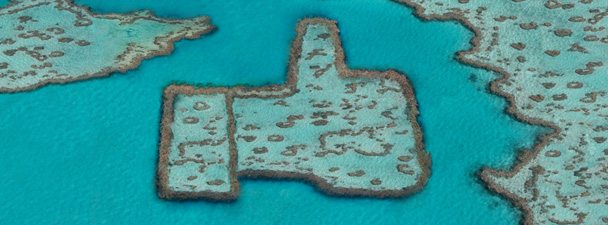Today we celebrate a new milestone – 100,000 Facebook fans. While some of you may be thinking “oh, so what!” I wanted to explain why this is actually a significant achievement for digital activism.

Why Facebook matters
It’s just a ‘like’ right? Well actually it isn’t. By liking our page and posts, you’re helping spread the word to people who might have never heard about our work. You’re therefore building pressure on decision makers and growing a stronger movement to protect the planet.
Most importantly, when you share posts with your friends, they’re more likely to notice it than if they read it from some third party organisation or in mainstream media. What you share, your friends take note of.
Here are a few examples of how you’ve used Facebook for the greater good:
Your opinions build our campaigns
We launched a petition to stop the WA shark cull and the response was overwhelming. One single Facebook post was shared 27, 000 times. And as more people shared, more people heard about the campaign and got involved. Within a few days, hundreds of thousands of supporters – 240, 000 to be exact – had put pen to paper – or fingers to keyboard in this case.
It’s fair to say that we got under the skin of the WA Premier. His office tried to counter Greenpeace in the press, accusing us of willingly taking down technical infrastructure by flooding their inbox with so many emails.
Next step for the campaign is challenging the cull at Federal level. Facebook will again be a key part of spreading the word.
Your opinions make brands accountable
Remember when Coca-Cola took the NT Government to court to stop the ‘cash for containers’ recycling program? We emailed our supporters asking you to sign our petition. Not only did thousands do so, you also took to Coca-Cola’s Facebook page and cluttered the page with thousands of comments. Coca-Cola, which is normally known for it’s super quick response on Facebook, didn’t know how to respond and went silent for weeks.
But if we had to point to a single moment when the corporate world realised they couldn’t ignore what happened on their Facebook pages, this would be it:
In 2010, after a Greenpeace report exposed how some of Nestlé products, including KitKat bars, were produced using palm oil grown from deforested areas. Thousands of people went on Nestlé’s Facebook page to demand answers from the company. However, it was really Nestlé’s own answers on their Facebook page which sparked global attention.
After what has become known as one of the worst corporate social media disasters, Nestlé committed to change its sources of palm oil.
You changed Facebook
No one is safe from Greenpeace. Not even Facebook. In 2011, we launched a campaign against Facebook to quit fuelling its data centres from coal fired power stations. After 20 months of mobilising, agitating and negotiating to green Facebook, the internet giant committed to run on clean, renewable energy.
A special thanks
To mark this celebration we’d like to say thank you to our 100, 000 + Facebook fans. Our page is filled every day with informed thoughts and ideas from you, which help us to understand the changes you want to see in the world and how you want Greenpeace to take action. Your voice on Facebook helps us shape our campaigns, but above all, it gives us another powerful channel to join together to press for change.
So please, keep on commenting, questioning, ‘liking’ and ‘sharing’ – and don’t forget to ‘like’ us if you don’t already!


